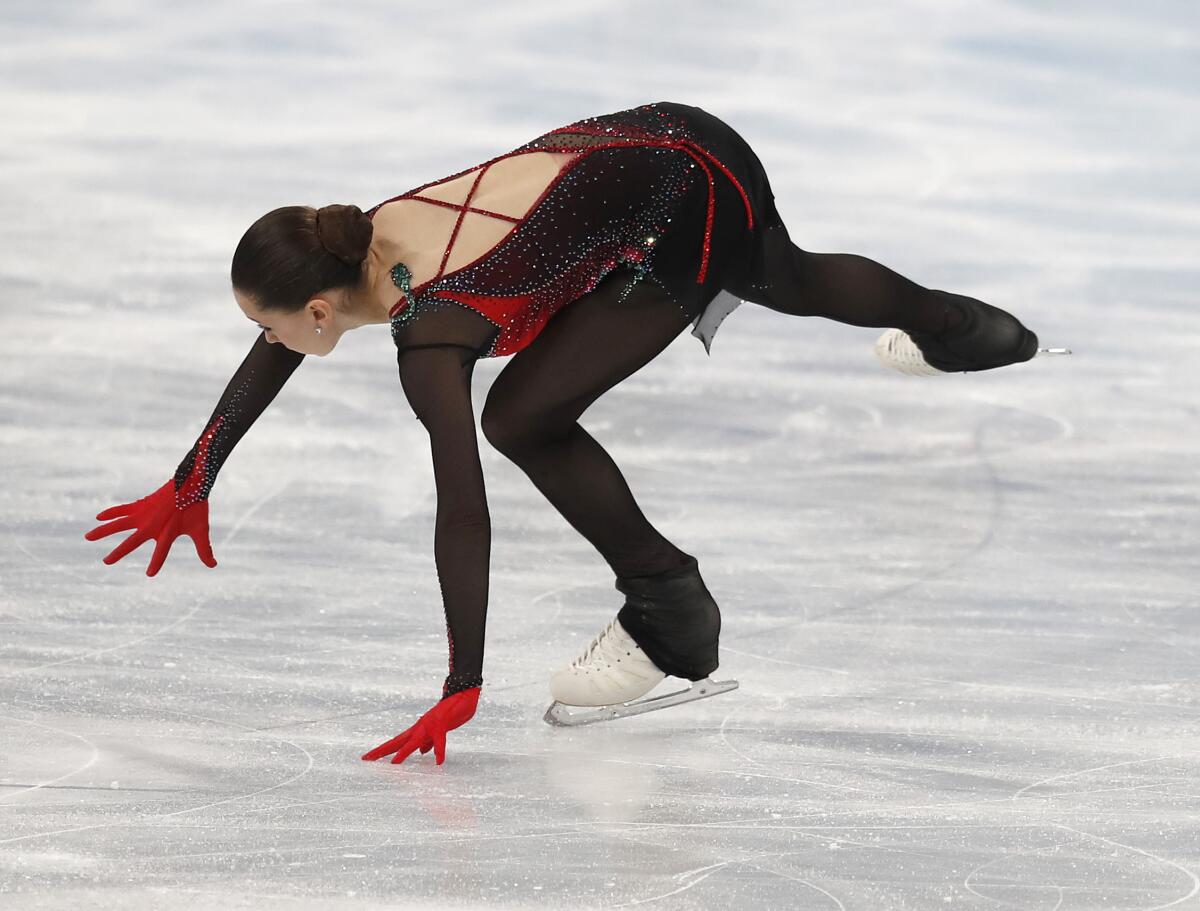Despite historic ratings low for the 2022 Winter Games, NBCUniversal remains bullish on Olympics

Faced with the lingering effects of a global pandemic, empty stands and a politically fraught situation in Beijing, NBC Sports was prepared for the worst with the Winter Olympics, and from a TV ratings standpoint that’s what it got.
The 2022 Winter Olympics averaged 11.4 million viewers across NBC’s networks in prime time, a 42% decrease from the 2018 Winter Games in Pyeongchang, South Korea. It’s the second consecutive set of Games to hit a record low. The 2020 Summer Games held in Tokyo last July delivered 15.5 million TV viewers over 17 days, down 42% compared to 2016.
Even with the steep decline, NBC Sports Group Chairman Pete Bevacqua said in an interview Wednesday that viewing levels for Beijing were within what the network’s sales and research departments estimated. The Comcast-owned unit was able to satisfy all commitments to advertisers who bought commercial time in the Games, he added.
While NBCUniversal won’t benefit from any upside that stronger audience levels would have delivered, it will not have to give any refunds. It helped that the company had more hours of coverage to sell.
And despite the historic low in Olympics viewing, the company has touted the benefits of the Games to its streaming service, Peacock.
“It was an absolute home run for Peacock,” Bevacqua said.
Bevacqua would not comment on whether the Winter Games will turn a profit for NBCUniversal. Comcast reports earnings in April.
Even with similar issues, the Tokyo Games delivered a significant revenue boost to Comcast in 2021, and company Chairman Jeff Shell told analysts they would be profitable. But the company did not comment on whether they were in the black when earnings were announced later in the year.
The decline in traditional TV ratings means the Games are clearly not the financial performer they once were for NBCUniversal, which has carried the event exclusively since 2002 and holds the domestic broadcast rights through 2032.
The company in 2014 extended its deal to carry the Games for $7.5 billion. The cost of the Winter Games is estimated to be around $975 million.
For the first time, every Olympic event was available on the Comcast streaming platform Peacock in addition to its NBC Sports and NBC Olympics apps. Live coverage, replays, highlights and exclusive content were made available to paying Peacock subscribers. Responding to consumer complaints during the Tokyo Games, scheduling and navigation tools directing viewers to where to find events across TV and streaming platforms were also improved.
Overall, viewers streamed 4.3 billion minutes of Winter Games content, which includes social media platforms, up 78% from the 2018 Pyeongchang Olympics.
Bevacqua said that usage levels and increase in paid subscriptions to Peacock exceeded projections, although the company did not release numbers for the service.
At the end of 2021, Comcast put the number of paying Peacock subscribers at 9 million, with another 7 million homes receiving the service as part of cable TV packages.
Lee Berke, a former TV sports executive and president of the consulting firm LHB Sports, Entertainment & Media, said the improved Olympic viewing experience could benefit Peacock and Comcast in the long term.
“They certainly can say, ‘Yeah, the ratings are down but look at what we’re doing for Peacock — it’s building our business for the future,’” Berke said.
He believes the broad viewing smorgasbord the Olympics provide could make it a target for a streaming company such as Netflix or Amazon — especially if the global rights become available — even though the Games are less potent as a TV attraction.
NBC Sports chief Pete Bevacqua says parent Comcast achieved its goal of boosting its Peacock platform with the Olympics despite “curveballs.”
Notwithstanding historic lows in the Nielsen ratings, the Olympics continued to show relative strength at a time when viewing has diminished for most broadcast properties.
More people watched the Winter Olympics than any other TV program in the 2021-22 TV season, with the exception of NFL contests, pointing to the continued value of live sports.
Over the last year, live sports programming accounted for one-third of all TV advertising revenue, according to Nielsen.
Along with the conditions on the ground in Beijing, the challenges that the Winter Games faced are the same as NBCUniversal experienced last summer. In the years since the 2016 Games, the range of choices for viewers has vastly expanded, with streaming services HBO Max and Disney+ coming online during that time.
The changing TV landscape meant viewers had plenty of other options if they chose not to sit through the at times grim atmosphere of the Winter Games, with suffered from masked athletes, no cheering fans in the stands and the lack of family members on the scene to share in any of the glory. The most dramatic story line — the poor performance of 15-year-old Russian figure skater Kamila Valieva. who was berated by her coach — was also its most depressing.
“Like Disneyland you want the Olympics to be the happiest place on earth,” Berke said. “It was not a happy time and people turned elsewhere.”
Berke added that NBC Sports deserved credit for not sugarcoating the difficult moments, including Valieva’s meltdown under the cloud of a doping scandal. “I wish [NBC Sports skating commentators] Tara Lipinski and Johnny Weir could cover NFL football and Major League Baseball and NBA basketball,” he said. “They were remarkable in striking the right tone.”
The candid approach extended to the normally jovial opening ceremonies, where “Today” co-anchor Savannah Guthrie and lead Olympics host Mike Tirico spoke to experts about China’s treatment of minority Muslim Uyghurs and crackdown on democracy in Hong Kong. A diplomatic boycott over the issue kept the U.S. from sending any government officials or representatives to the event.
Although the grim proceedings may not have appealed to viewers looking for uplifting escapism, Bevacqua said such moments come with the territory.
“We felt it was our obligation to set the stage because that’s reality,” Bevacqua said. “It was a delicate balance, but I was really proud and pleased with the way the team handled it.”
The rough experience of the last two Olympic Games has not shaken Bevacqua’s belief that the event can remain a vital attraction going forward. He believes more scenic locales in democratic countries, as well as having a global health crisis in the rear-view mirror, will help restore some luster to the event.
The 2024 Summer Games will be held in Paris, followed by the 2026 Winter Games in Milan and Cortina d’Ampezzo, Italy, and the 2028 Summer Games in Los Angeles.
“Our hope is that we can come out of two very difficult Games because of being in the midst of the pandemic and then layer on top of that the geopolitical issues surrounding China, and hopefully really work with the International Olympic Committee to get all of the magic and the energy back into these Games,” he said.
More to Read
Inside the business of entertainment
The Wide Shot brings you news, analysis and insights on everything from streaming wars to production — and what it all means for the future.
You may occasionally receive promotional content from the Los Angeles Times.












